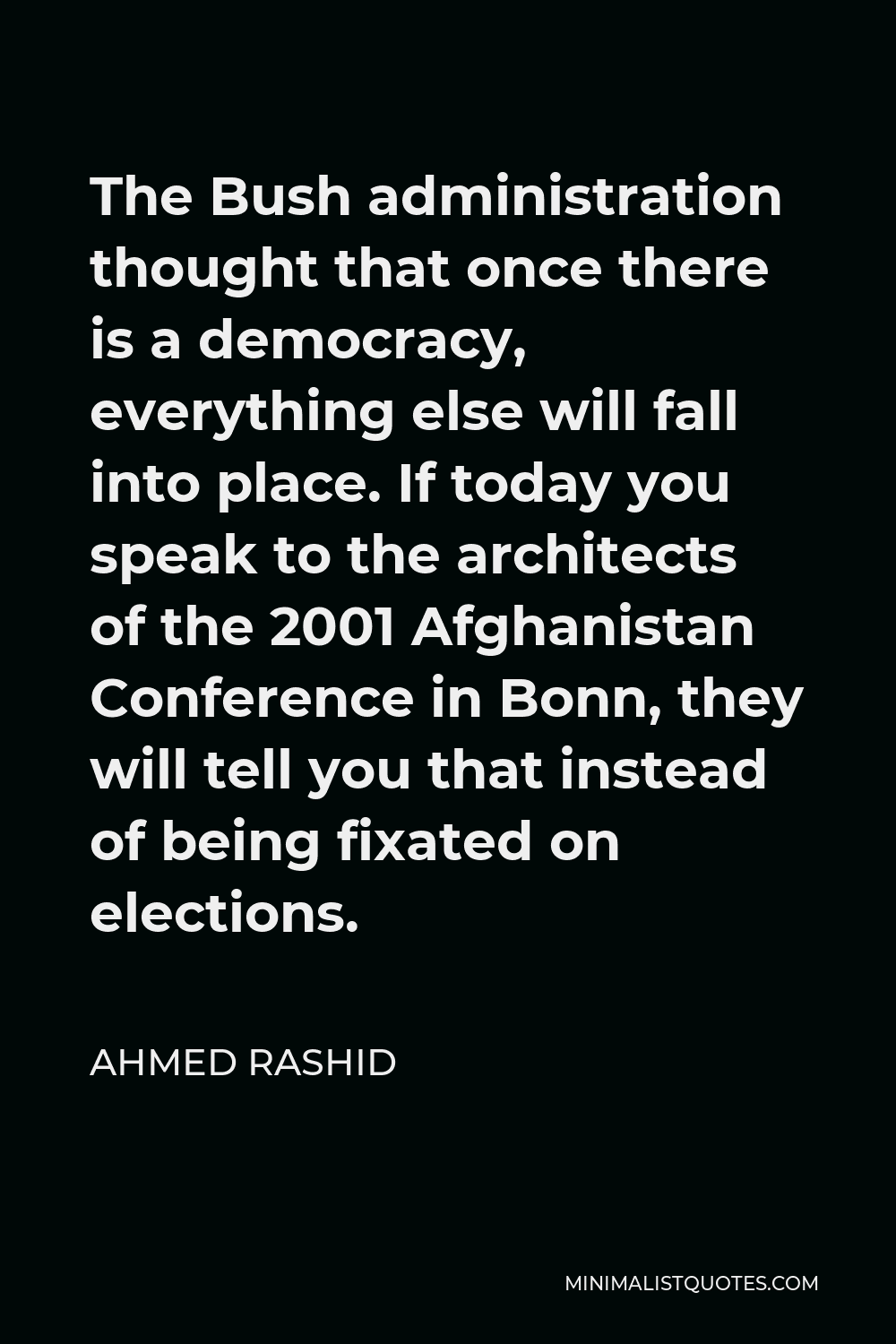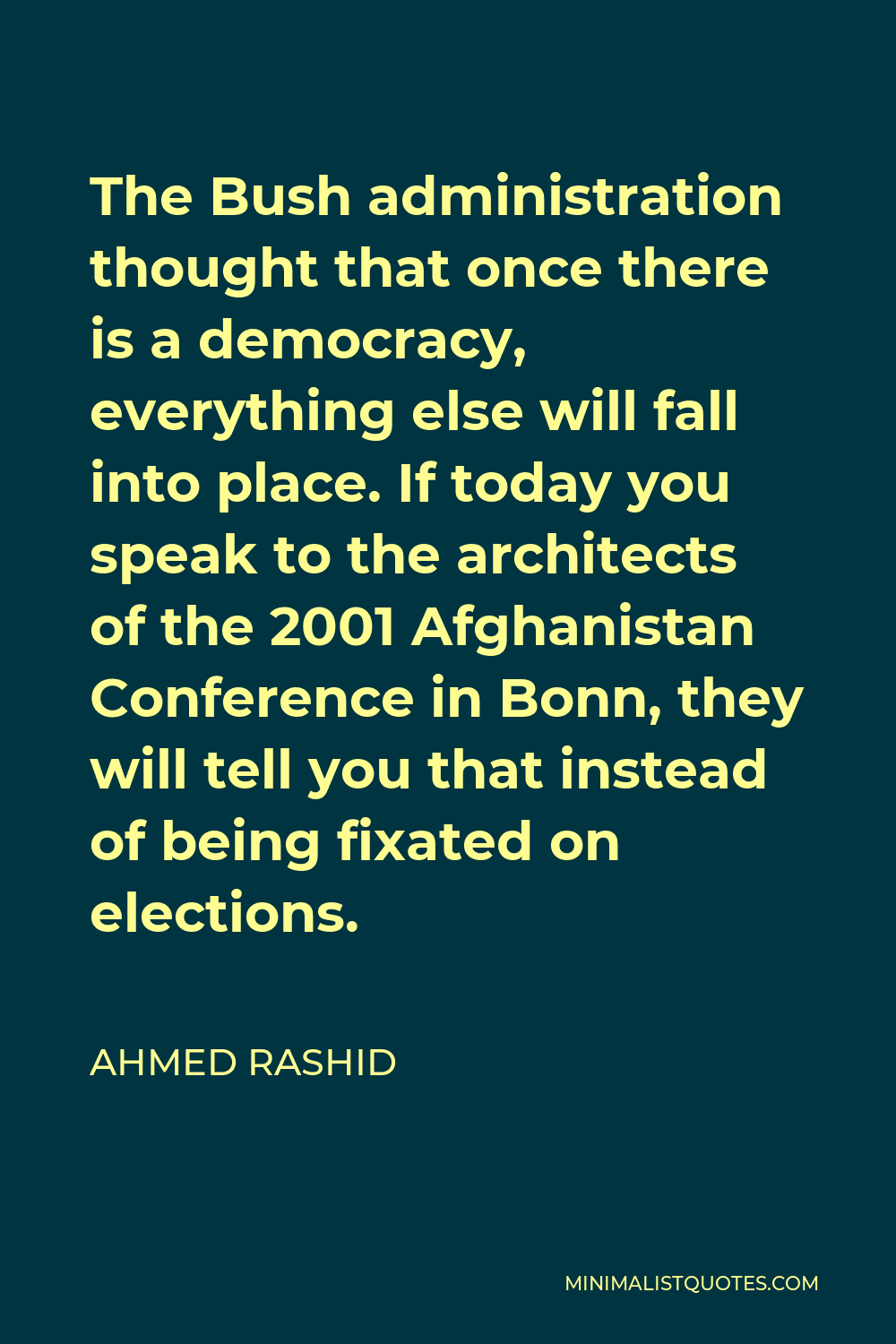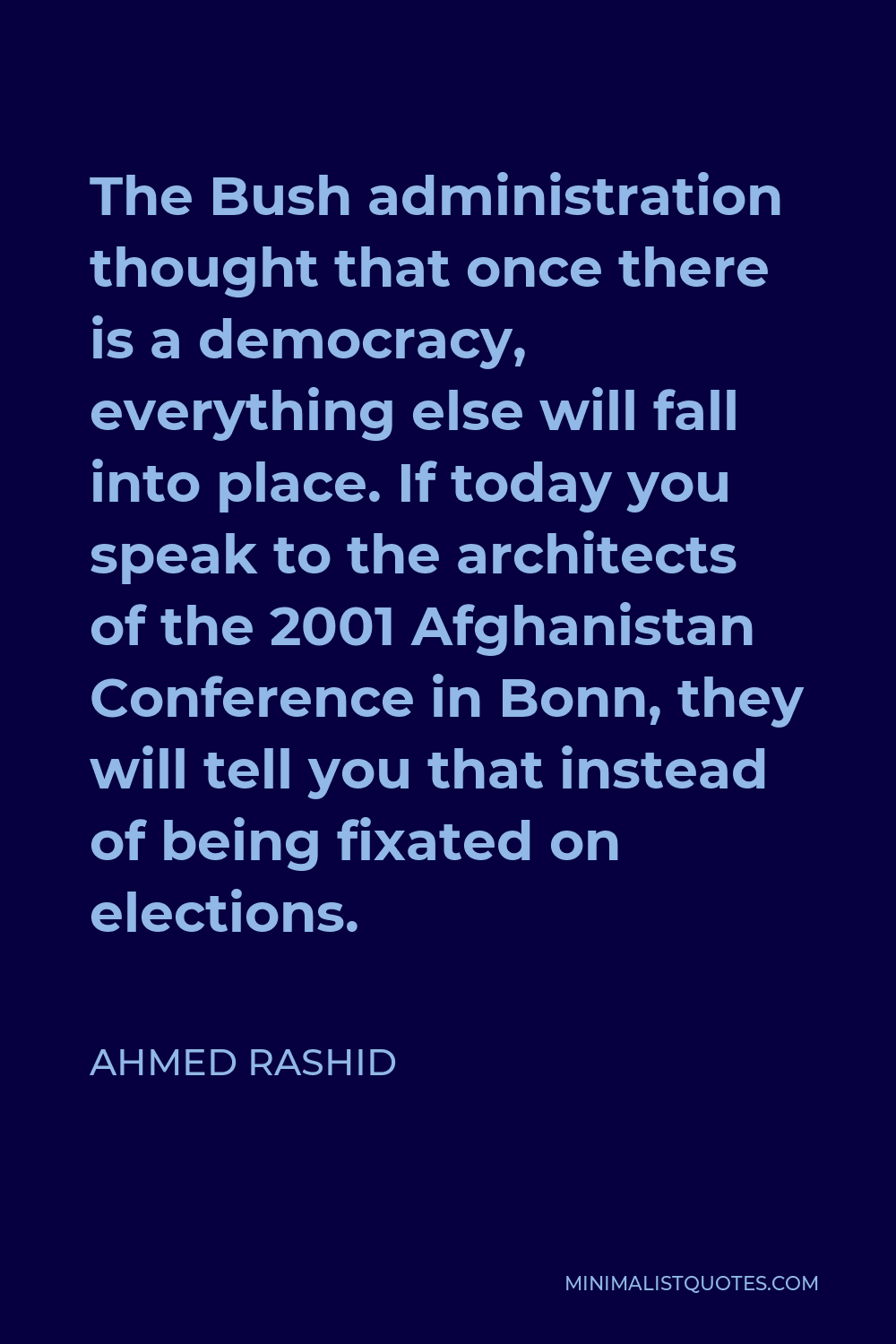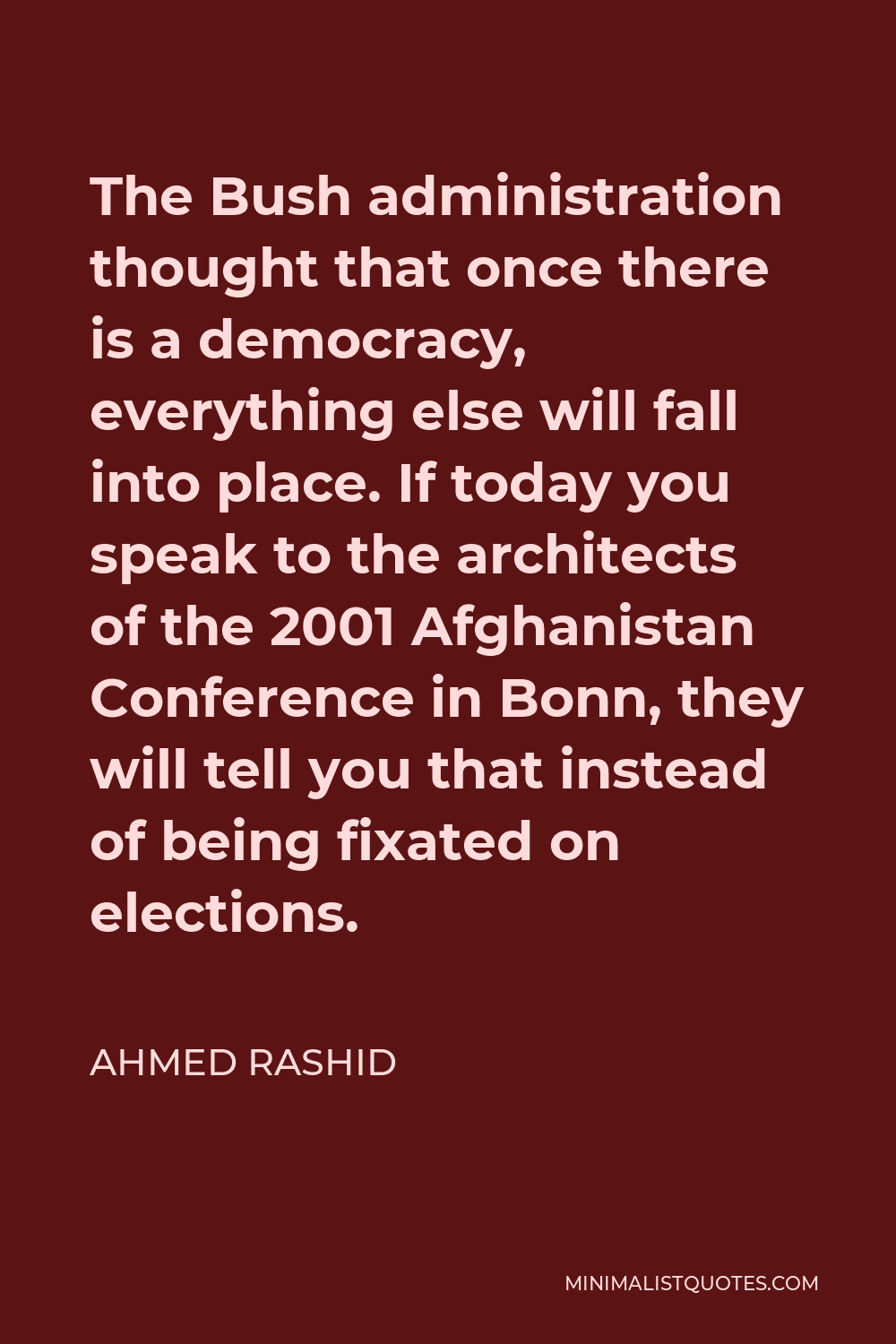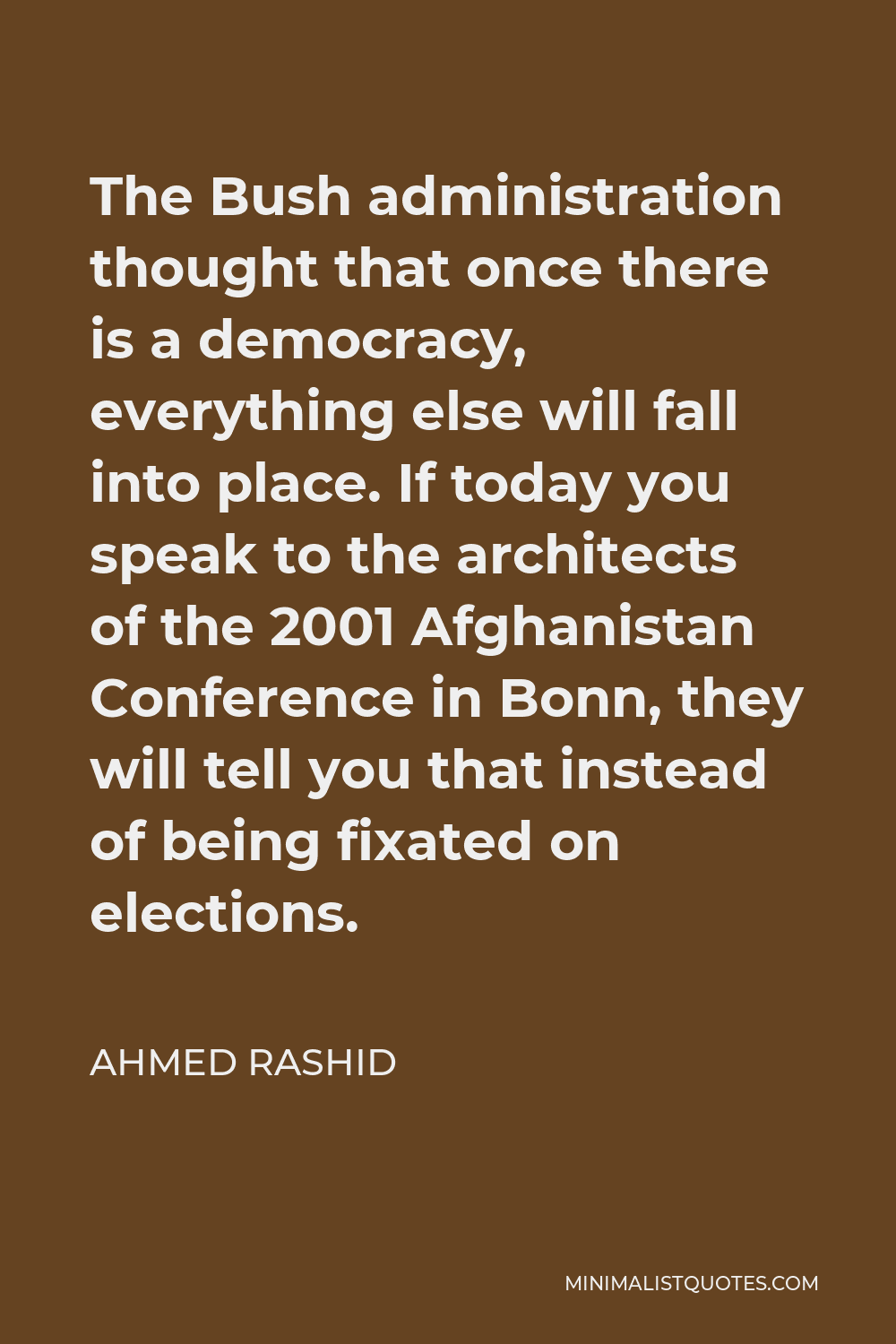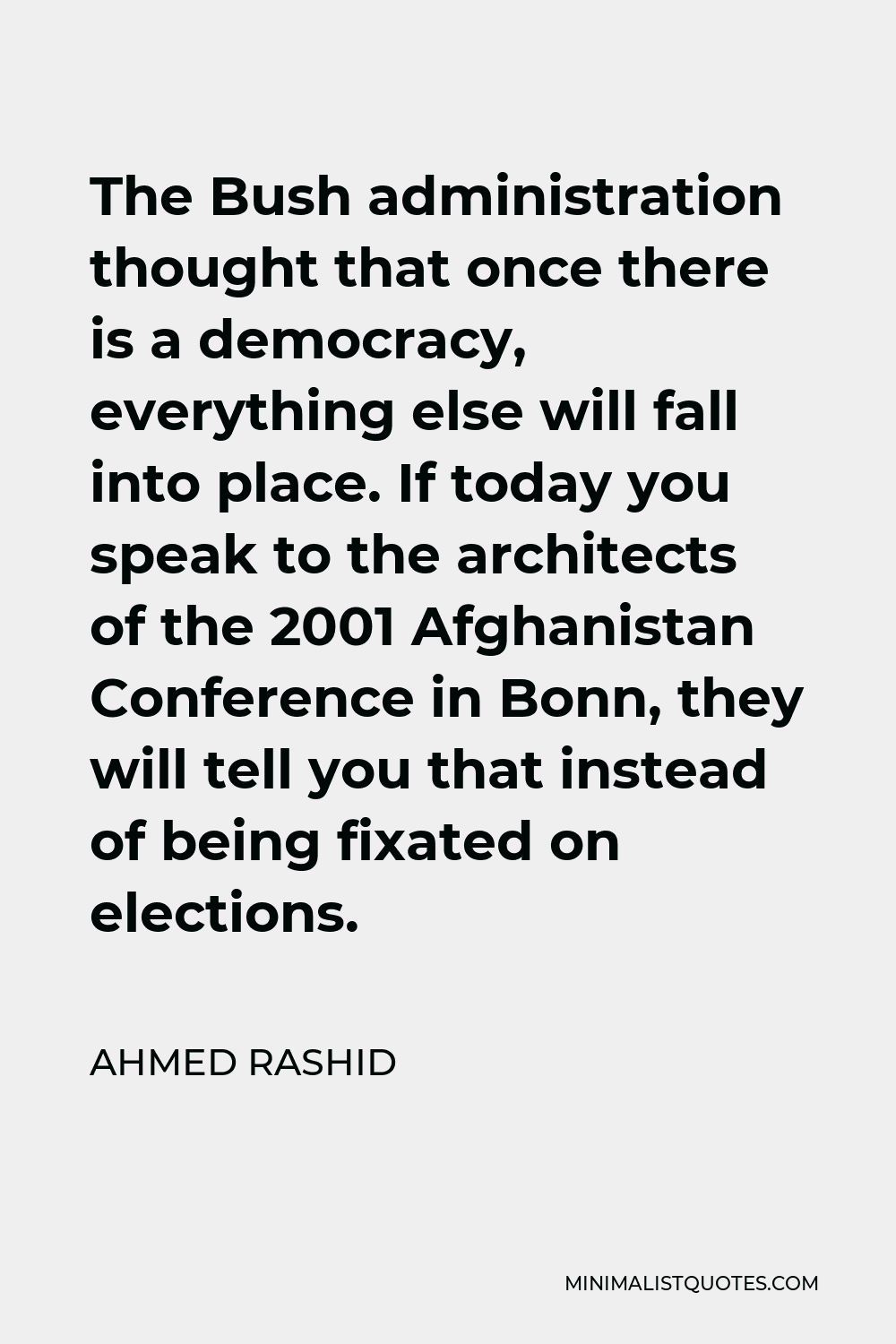The fact that there are no longer large units of Al Qaeda running around means you don’t need B-52s.
AHMED RASHIDThe Bush administration thought that once there is a democracy, everything else will fall into place. If today you speak to the architects of the 2001 Afghanistan Conference in Bonn, they will tell you that instead of being fixated on elections.
More Ahmed Rashid Quotes
-







-





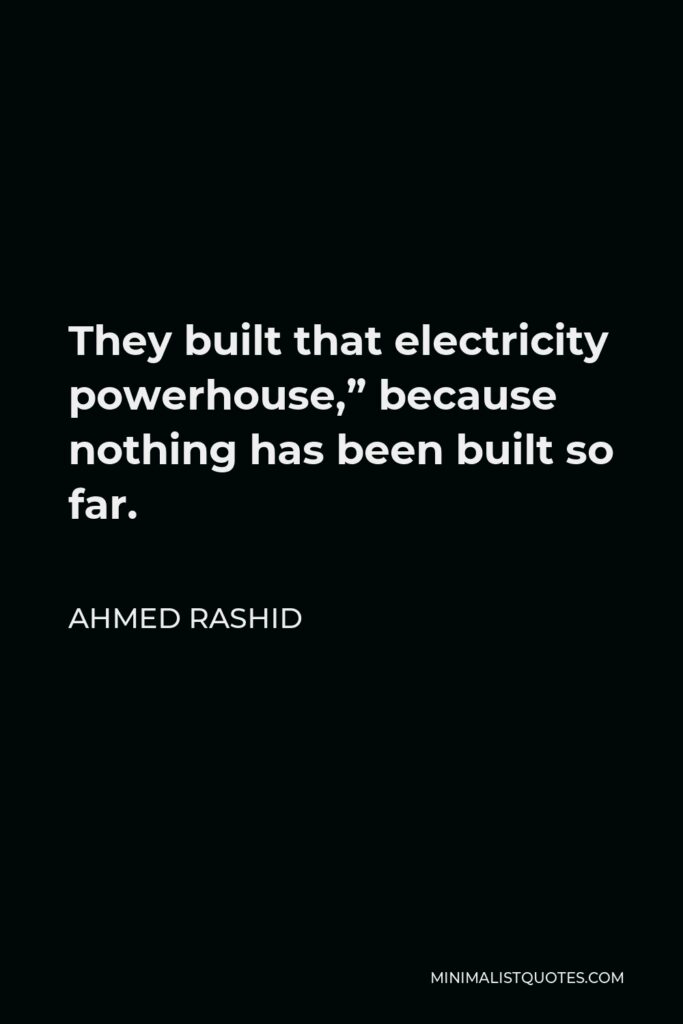

They built that electricity powerhouse,” because nothing has been built so far.
AHMED RASHID -





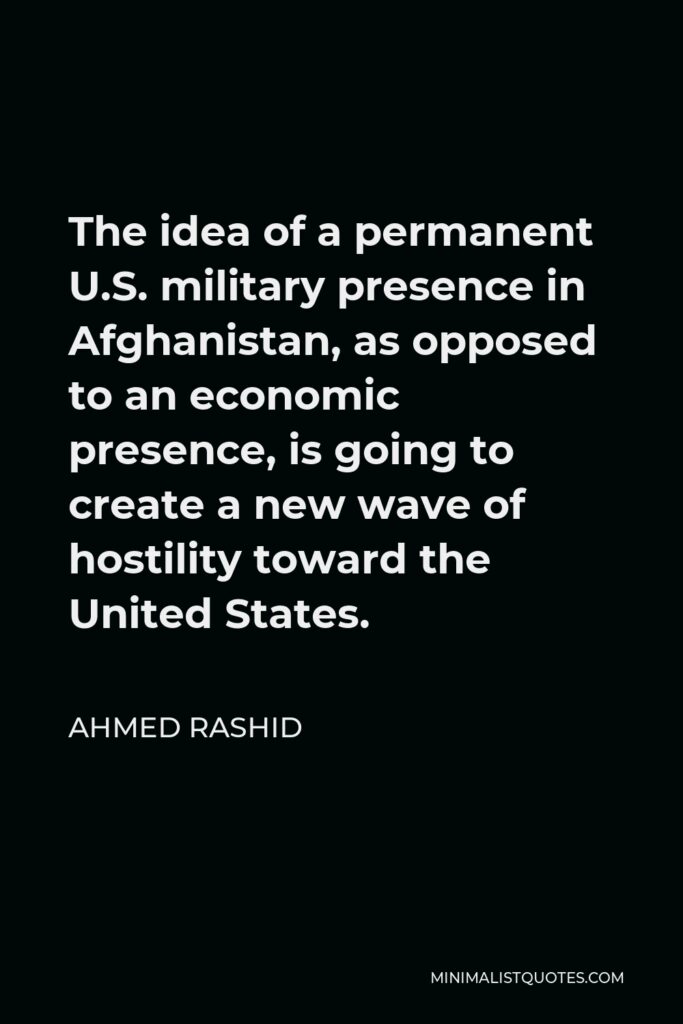

The idea of a permanent U.S. military presence in Afghanistan, as opposed to an economic presence, is going to create a new wave of hostility toward the United States.
AHMED RASHID -





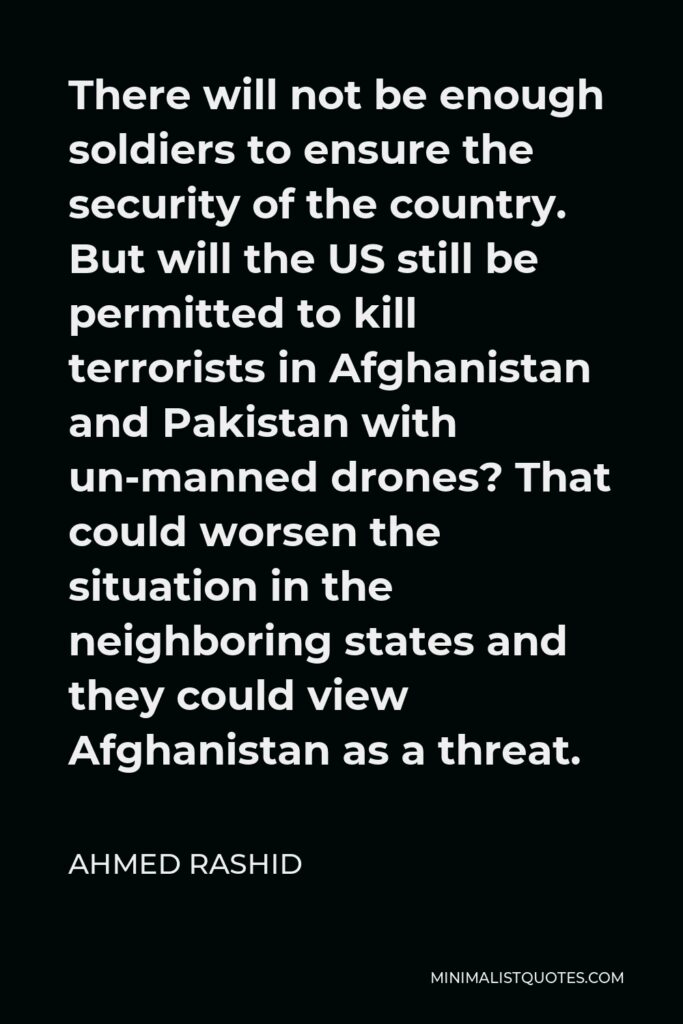

There will not be enough soldiers to ensure the security of the country. But will the US still be permitted to kill terrorists in Afghanistan and Pakistan with un-manned drones? That could worsen the situation in the neighboring states and they could view Afghanistan as a threat.
AHMED RASHID -





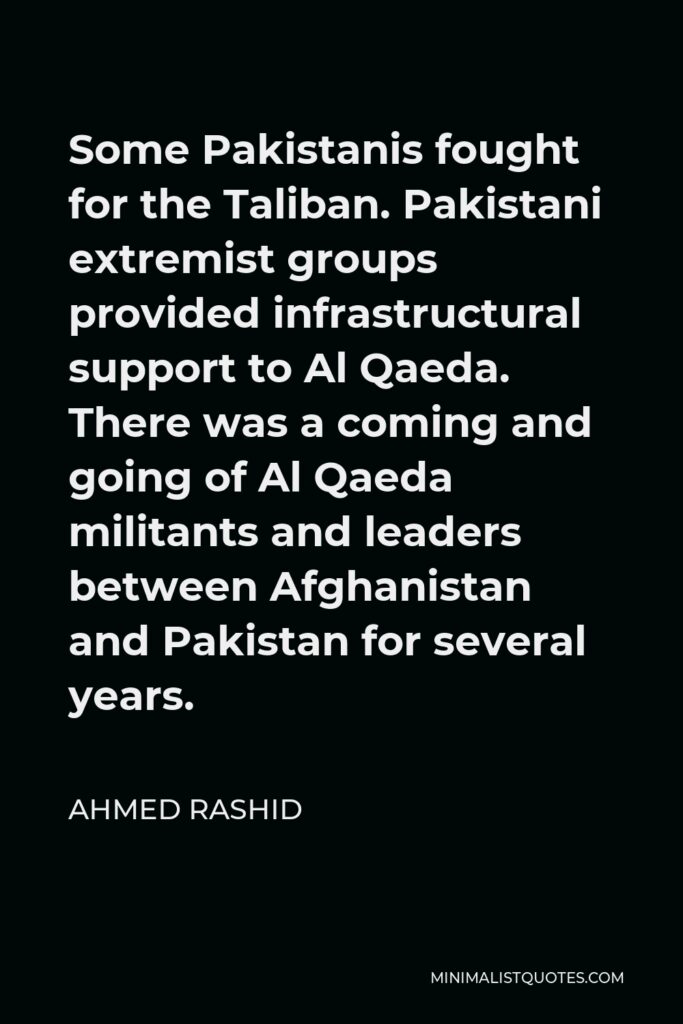

Some Pakistanis fought for the Taliban. Pakistani extremist groups provided infrastructural support to Al Qaeda. There was a coming and going of Al Qaeda militants and leaders between Afghanistan and Pakistan for several years.
AHMED RASHID -





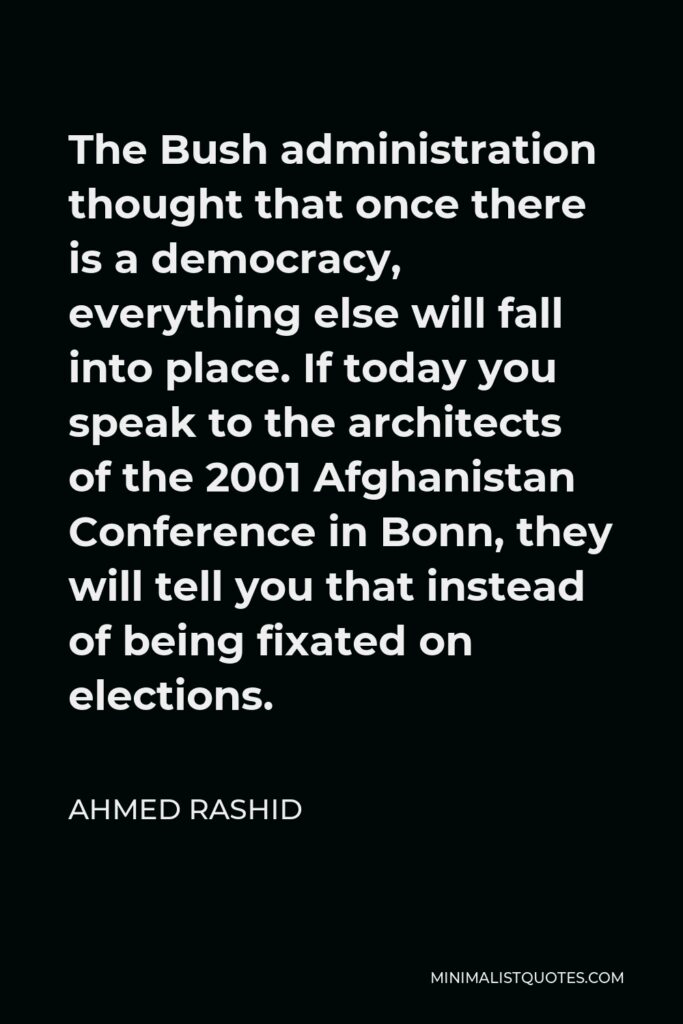

The Bush administration thought that once there is a democracy, everything else will fall into place. If today you speak to the architects of the 2001 Afghanistan Conference in Bonn, they will tell you that instead of being fixated on elections.
AHMED RASHID -





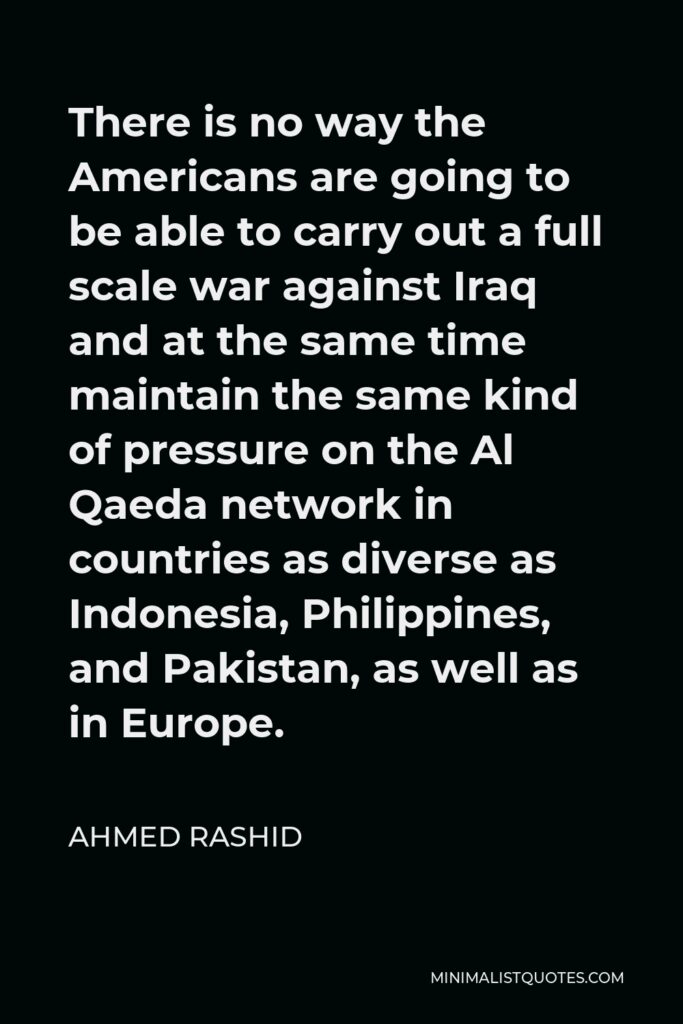

There is no way the Americans are going to be able to carry out a full scale war against Iraq and at the same time maintain the same kind of pressure on the Al Qaeda network in countries as diverse as Indonesia, Philippines, and Pakistan, as well as in Europe.
AHMED RASHID -





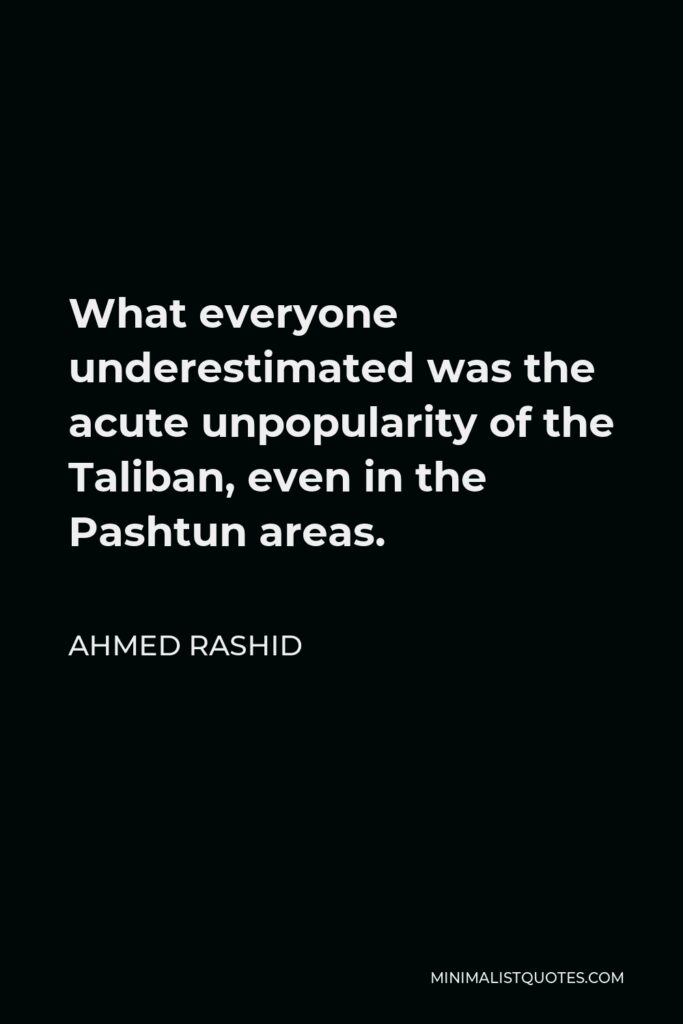

What everyone underestimated was the acute unpopularity of the Taliban, even in the Pashtun areas.
AHMED RASHID -





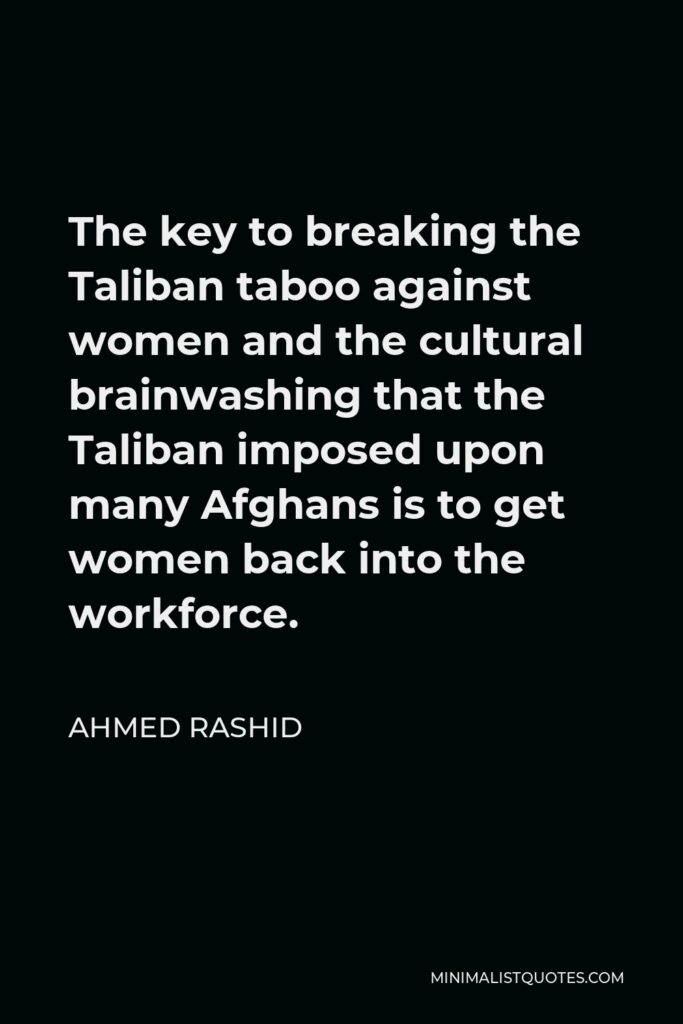

The key to breaking the Taliban taboo against women and the cultural brainwashing that the Taliban imposed upon many Afghans is to get women back into the workforce.
AHMED RASHID -





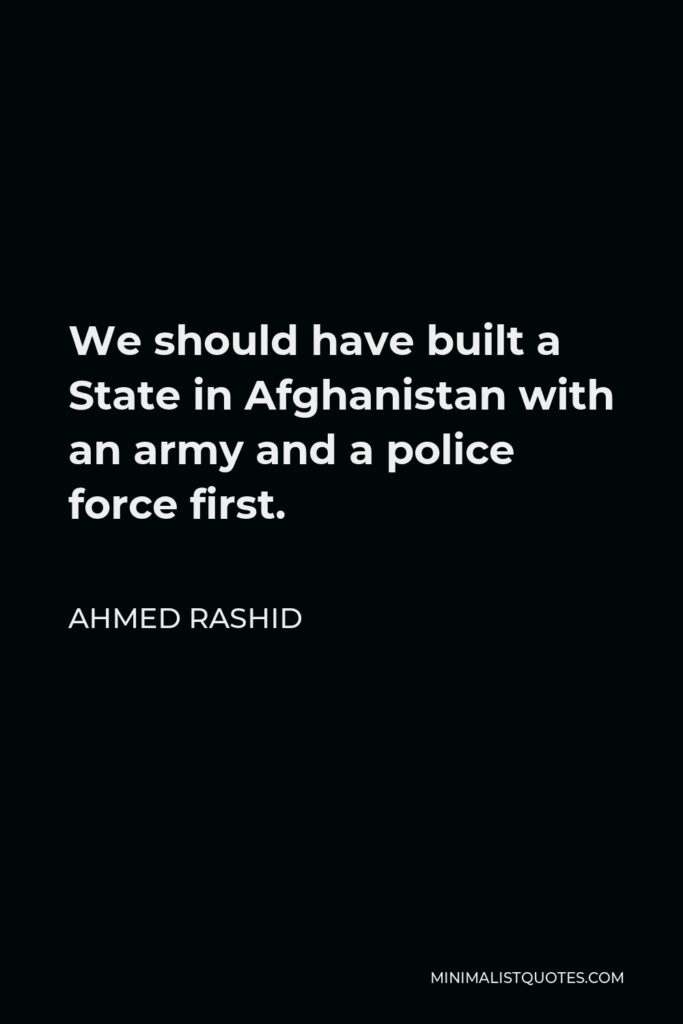

We should have built a State in Afghanistan with an army and a police force first.
AHMED RASHID -





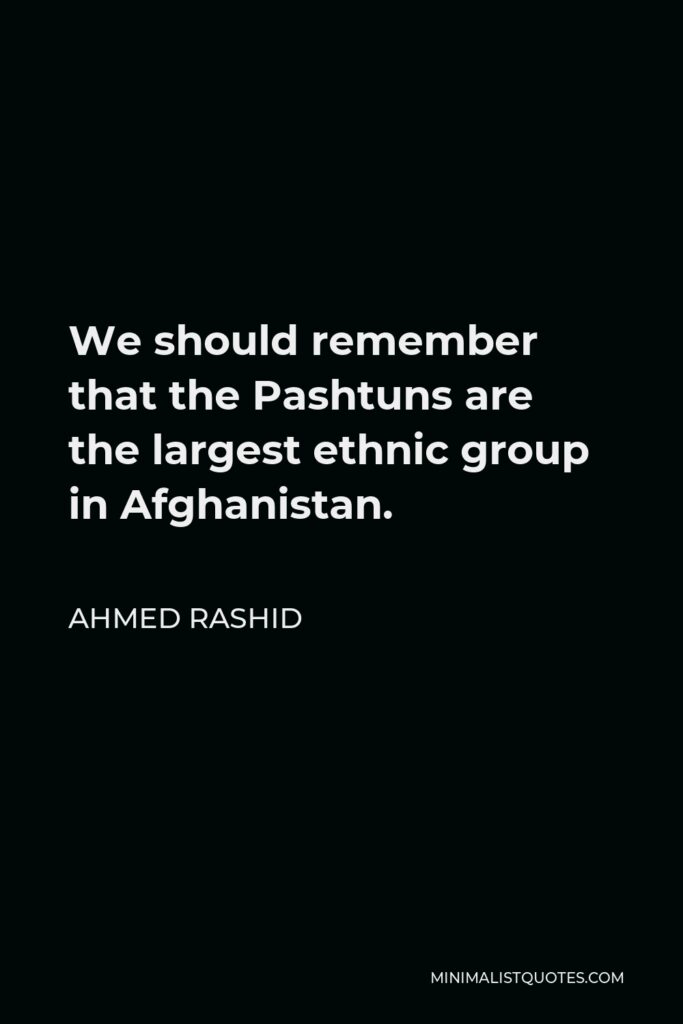

We should remember that the Pashtuns are the largest ethnic group in Afghanistan.
AHMED RASHID -





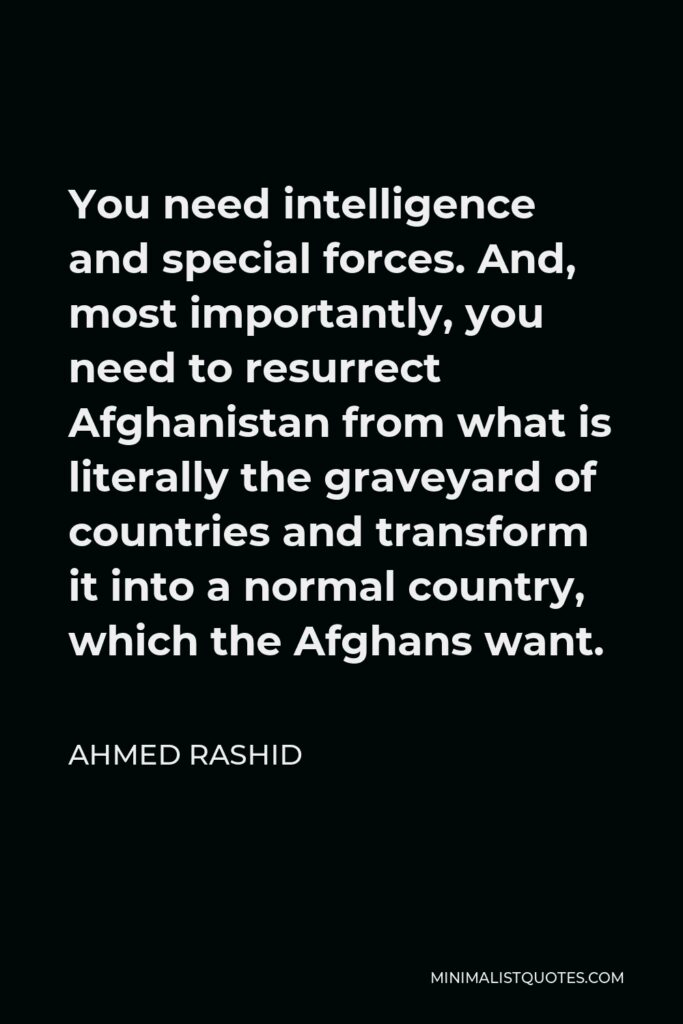

You need intelligence and special forces. And, most importantly, you need to resurrect Afghanistan from what is literally the graveyard of countries and transform it into a normal country, which the Afghans want.
AHMED RASHID -





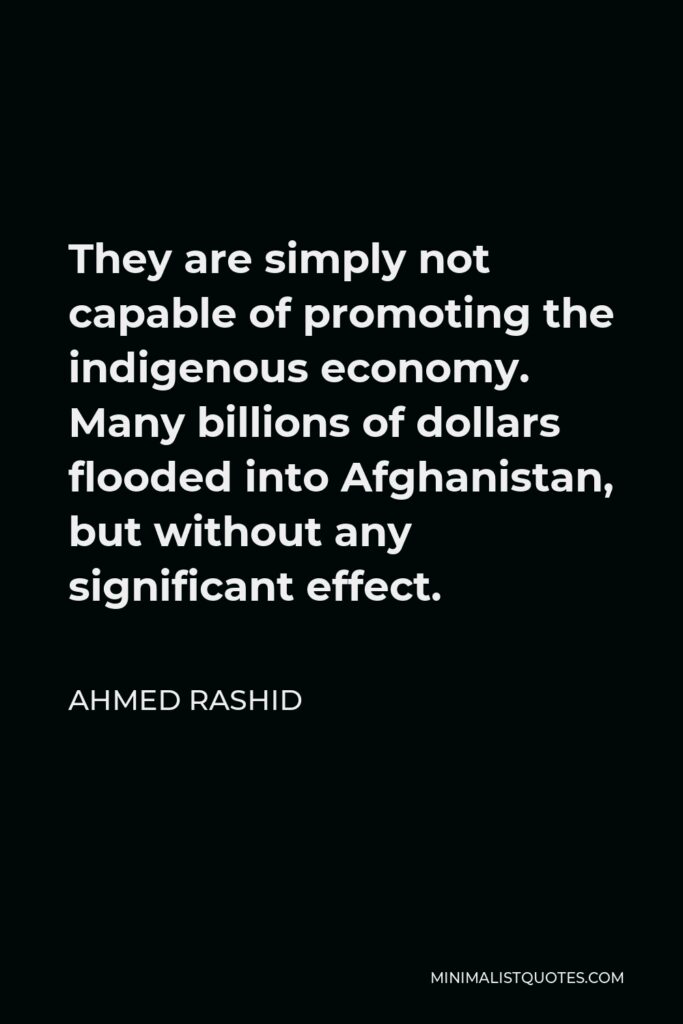

They are simply not capable of promoting the indigenous economy. Many billions of dollars flooded into Afghanistan, but without any significant effect.
AHMED RASHID -





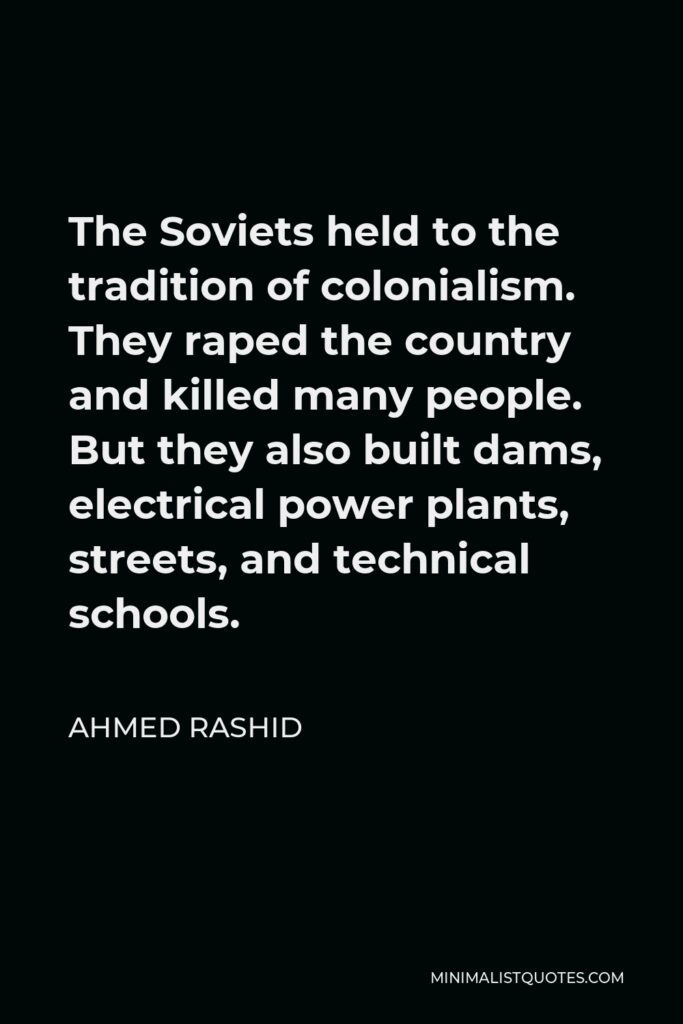

The Soviets held to the tradition of colonialism. They raped the country and killed many people. But they also built dams, electrical power plants, streets, and technical schools.
AHMED RASHID -





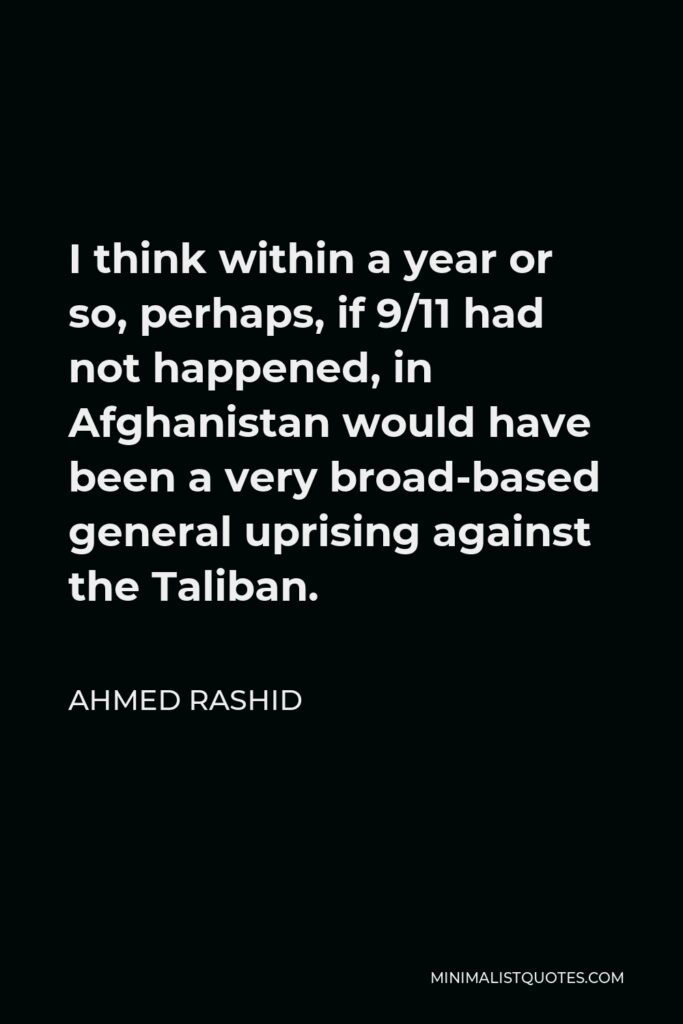

I think within a year or so, perhaps, if 9/11 had not happened, in Afghanistan would have been a very broad-based general uprising against the Taliban.
AHMED RASHID -





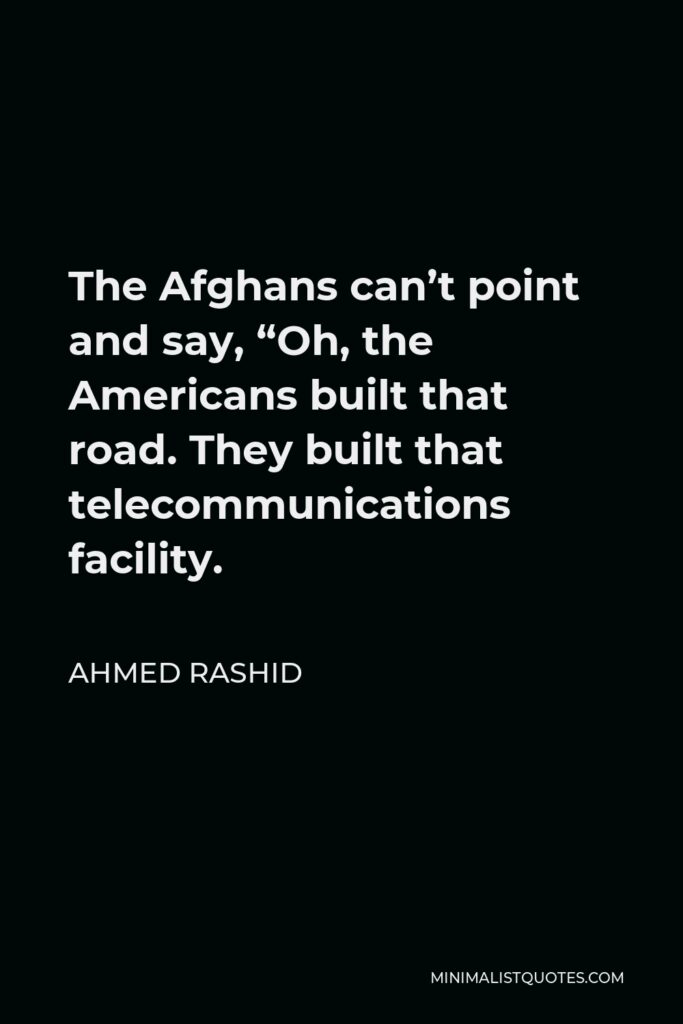

The Afghans can’t point and say, “Oh, the Americans built that road. They built that telecommunications facility.
AHMED RASHID
